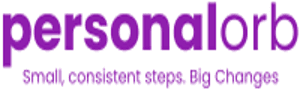In today’s fast-paced world, creating a conscious and productive work environment is essential. A conscious workspace isn’t just about completing tasks efficiently—it’s about being present in the moment, taking care of mental and emotional well-being, and creating a space that encourages creativity and collaboration. By nurturing a mindful work culture, employees can achieve a balance that leads to higher productivity, improved morale, and overall satisfaction.
In this article, we will explore how to cultivate a more conscious and productive work environment. From practicing mindfulness to optimizing your workspace, we’ll discuss practical tips that can make a significant difference in how you approach your workday. For those interested in exploring how mindfulness can further enhance productivity, The Art of Mindful Productivity: Work Smarter, Not Harder offers additional insights.
The Power of Mindfulness in the Conscious and Productive Work Environment
Mindfulness is the art of being fully present in the moment. It involves focusing your attention on the task at hand without judgment or distraction. In a conscious work environment, mindfulness can have a profound effect on productivity, focus, and overall job satisfaction.
Reducing Stress and Enhancing Focus in a Conscious Work Environment
One of the key benefits of mindfulness in the workplace is its ability to reduce stress. When employees practice mindfulness, they become more aware of their emotions and reactions, which allows them to manage stress more effectively. By taking a moment to pause, breathe, and center themselves, individuals can avoid the overwhelm that often comes with multitasking or facing high-pressure situations.
Improving Emotional Regulation
Mindfulness also helps improve emotional regulation, which is crucial in a workplace setting. Being able to recognize and manage your emotions allows for more effective communication and conflict resolution. When employees are mindful, they are more likely to approach challenges with a calm and measured mindset, which leads to better decision-making and collaboration.
Organizing a Conscious and Productive Workspace
A cluttered and disorganized workspace can lead to mental clutter and decreased productivity. By creating an organized and harmonious environment, employees can reduce stress and stay focused on their tasks.
Decluttering for Better Focus
Start by decluttering your workspace. Remove any unnecessary items that are not directly related to your current work. A clean and organized desk can improve mental clarity and help you focus on the task at hand. Keep only the essentials within arm’s reach—this will minimize distractions and help you stay organized.
Additionally, organizing your digital workspace is just as important as your physical one. Sort through emails, files, and documents, and create an efficient system that allows you to quickly find what you need. This will help you save time and reduce the feeling of being overwhelmed.
Personalizing Your Space
While it’s important to keep things organized, it’s also essential to personalize your workspace. Adding elements that inspire creativity—such as artwork, plants, or meaningful objects—can create a positive and motivating atmosphere. A workspace that reflects your personal values and interests can also increase job satisfaction and enhance overall well-being.
The Role of Healthy Habits in the Workplace
Incorporating healthy habits into your daily routine is key to maintaining both productivity and well-being. Healthy habits support your physical and mental health, making it easier to stay focused and motivated throughout the day.
Movement and Breaks
Sitting for long periods can lead to fatigue and decreased productivity. Taking short breaks throughout the day to stretch, walk, or practice breathing exercises can help refresh your mind and body. Incorporating movement into your routine encourages better circulation and helps prevent physical discomfort caused by sitting at a desk for too long.
Encourage team members to take regular breaks and engage in light physical activity. Whether it’s a quick walk outside or a few stretches at the desk, regular movement can boost energy levels and help employees return to work feeling more focused and refreshed.
Mindful Eating and Hydration
What you eat and drink can also impact your productivity. Encourage healthy eating habits by providing nutritious snacks, like fruits, nuts, or yogurt, and promoting water consumption throughout the day. Staying hydrated helps maintain energy levels and improves cognitive function, while balanced meals can keep you alert and focused.
Mindful eating is another aspect of mindfulness that can be integrated into the workday. Taking a few moments to appreciate and enjoy your meals without distractions allows you to recharge and re-energize.
Encouraging Open Communication and Collaboration
A conscious work environment also emphasizes open communication and collaboration. By creating a space where employees feel comfortable expressing their thoughts and ideas, you can foster innovation, creativity, and mutual respect.
Building Trust and Transparency
Transparency and trust are essential for creating a conscious workplace culture. Encourage honest and respectful communication among team members. Regular check-ins, feedback sessions, and clear expectations help build a strong foundation of trust.
By promoting open dialogue, employees are more likely to feel heard and valued. This sense of trust fosters collaboration, where team members can work together towards common goals without fear of judgment or conflict.
Encouraging Open Communication and Collaboration
A conscious work environment also emphasizes open communication and collaboration. By creating a space where employees feel comfortable expressing their thoughts and ideas, you can foster innovation, creativity, and mutual respect.
Building Trust and Transparency
Transparency and trust are essential for creating a conscious workplace culture. Encourage honest and respectful communication among team members. Regular check-ins, feedback sessions, and clear expectations help build a strong foundation of trust.
By promoting open dialogue, employees are more likely to feel heard and valued. This sense of trust fosters collaboration, where team members can work together towards common goals without fear of judgment or conflict. For more on how mindfulness interventions can impact productivity, check out the study by the University of California, San Francisco on the effects of workplace digital mindfulness interventions: Read the full study here.
Conclusion
Creating a more conscious and productive work environment requires a commitment to mindfulness, organization, healthy habits, and open communication. By implementing these strategies, employees can experience less stress, improved focus, and greater satisfaction in their work. A conscious workplace encourages individuals to be present, stay focused, and contribute meaningfully to the team. Ultimately, fostering this type of environment benefits not only individual well-being but also the overall success of the organization. By making these changes, you can create a more harmonious and productive work culture that promotes growth and fulfillment for everyone.

